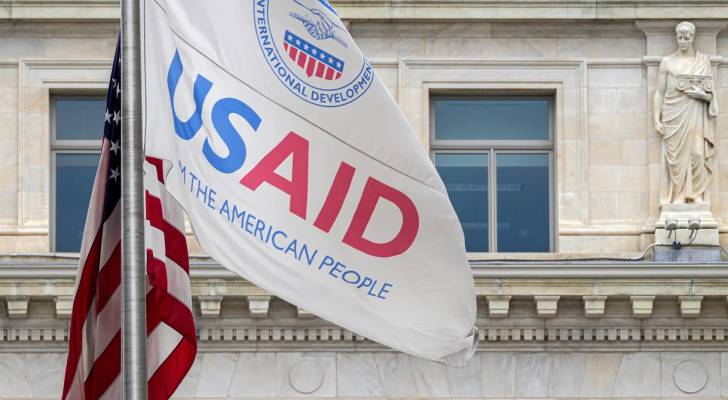USAID flag.
Several NGOs lay off employees funded by USAID
“It was so sudden that I can’t comprehend,” Mohammed shared, expressing his shock upon receiving an unexpected email from the local NGO he had been working with for four years.
The email instructed him to cut short his trip to southern Jordan, where he was conducting a workshop he had spent the past month planning on women’s legal empowerment.
The message directed Mohammed to return to Amman immediately, avoid coming to the office, and hand over his laptop without further delay.
The situation began when the United States announced a freeze on foreign aid, excluding military assistance to Egypt and ‘Israel’, as well as emergency food aid. This decision was part of a comprehensive review to determine alignment with US President Donald Trump’s foreign policy priorities.
An internal memo from US Secretary of State Marco Rubio to staff, obtained by Agence France-Presse (AFP), revealed that the freeze halts all new funding and extensions of ongoing projects until they are reviewed and approved in accordance with President Trump’s agenda.
This move follows Trump’s order for a 90-day review of foreign development assistance to assess its efficiency and alignment with his foreign policy objectives.
As the world’s largest international aid donor, the United States allocated $68 billion in aid in 2023, according to White House figures. The freeze impacts various types of aid, including development assistance and military support, with exceptions only for emergency food aid and military funding for ‘Israel’ and Egypt.
The founder of a local NGO, who preferred to remain anonymous along with her organization, told Roya that the situation is highly critical and unclear. She discussed the level of government support for NGOs and whether authorities truly recognize the importance of their role in Jordanian society.
She also noted that this is happening for the first time and that the aftermath of this crisis remains uncertain.
She emphasized that this situation, along with previous crises like the COVID-19 pandemic, should have prompted NGOs to rethink their strategies to ensure greater sustainability and resilience in their work.
The freeze on US foreign assistance has halted not only NGO operations but also critical government projects across Jordan. Imad Momani, the head of Zarqa Municipality, revealed that at least three major projects funded by USAID have come to a complete standstill. These include the construction of a regional maintenance center for central Jordan, a project worth JD 4 million, as well as the expansion of the municipality’s container manufacturing plant and the development of an electric vehicle charging station.
He expressed his frustration, calling the move a political tactic designed to pressure Jordan into accepting controversial regional plans, including displacement of Palestinians and alternative homeland proposals. He criticized the instability of such alliances “with a country that operates on the principle: there are no permanent enemies or friends, only permanent interests.”
The impact of the funding freeze is already being felt on the ground. Momani’s remarks highlight the cascading effects on municipalities and local development projects, many of which play a crucial role in improving infrastructure and public services.
Roya reached out to the US Embassy in Jordan for a comment on the situation but is still waiting for an official response.




